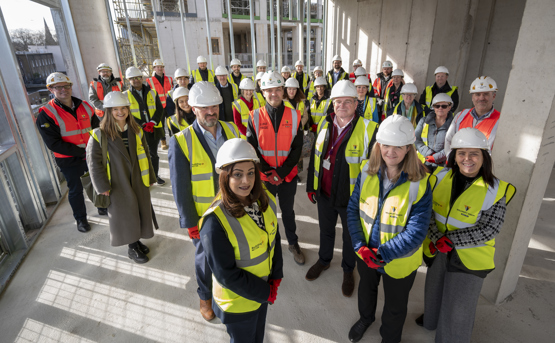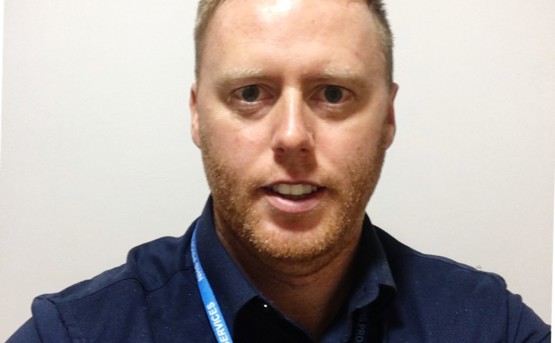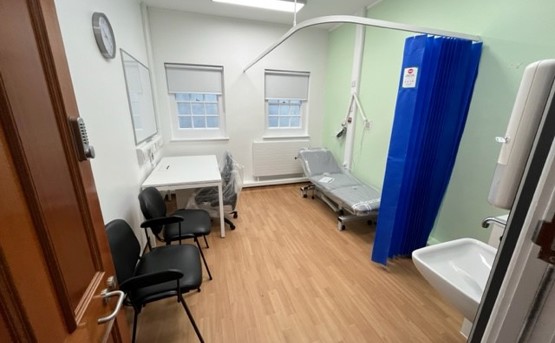
Published date: 08 September 2020
Our Smarter Working Journey – Getting Started
Kate Richardson, our head of National Office Programme, shares the beginnings of our Smarter Working journey, how we plan to develop this across our workforce, estate and technology, and the areas you should look at to set up your own.
Author
The Covid-19 pandemic has completely transformed how we live, including how we work. Traditional models of working – based primarily around the physical office – became impossible almost overnight, and companies had to find new ways of working – at speed and scale – to ensure business continuity. Even as many of us slowly return to ‘normal’ post-lockdown this new approach to working life is undeniably here to stay, and many organisations – including NHS Property Services – are exploring how to embed and enable smarter working in the long-term.
In this piece, I look at the beginnings of our Smarter Working journey and share how we plan to develop this across our workforce, estate and technology and the areas you should look at to set up your own.
Share your smarter working journey
NHS Property Services’ expertise in estates and facilities management has put us in good stead for this transition and our specialised National Office Programme team already had rich experience of optimising and designing the NHS office estate to encourage more agile ways of working. However, as we embark upon our Smarter Working programme in earnest, we are rapidly developing this expertise and are keen to share these learnings as we progress. Sharing this process with your organisation helps to create the foundations for change.
Build an open culture
Establishing an open culture across your NHS (and wider public sector) organisation is crucial as we find what our ‘new normal’ looks like. Here at NHSPS we are keen to develop and share our growing expertise to support our NHS partners. We want to develop an NHS office estate that enables a productive and happy workforce, as well as efficiently use NHS funds.
In the coming months we will regularly be sharing updates as we develop and roll out our own Smarter Working programme, but we are keen to discuss how we can help our customers too – we are already working with many NHS customers to accelerate their preparation and implementation of smarter working practices.
Assemble the right Smarter Working team
Our first step was to grow our existing Office Forum team to become a truly cross-functional working group, inviting colleagues from our main delivery teams (asset management and operations) as well as our people team, communications and technology. This meant all parts of the organisation were consulted and could feed into our new Smarter Working policy to make it more holistic, but also boosted chances of policy engagement and adoption as we would have a ready-made ‘champion’ network to cascade updates across teams. Executive sponsorship was important, and we had three Directors joining our initial meetings to guide and accelerate progress where needed.
Our goal was to develop a formal Smarter Working proposition and implementation plan, phased into a shorter-term ‘return to the office’ post-lockdown and a longer-term consideration of what Smarter Working could look like at NHSPS.
Assess colleague views
Before we could build our plan, we needed to broaden our understanding of colleagues’ experiences. To do this we ran two company-wide surveys, the first focussing on health and safety to address more immediate concerns for colleagues working from home without the proper equipment and support – this helped us to assess the scale of investment and operational processes we’d need in the short-term. The second survey took a longer-term, strategic view, establishing the level of interest in returning to ‘business as usual’ (i.e. in the office five days a week) vs a more mixed approach.
We found 59% of employees thought that working from home positively affected their work productivity. Only 8% found that there were too many distractions at home to work. Importantly, 95% of people felt that they still felt “connected” with the wider company and felt informed about what was happening within the company. And - crucial to our strategy – 73% wanted to work three or less days a week in the office in future, proving a real appetite for a more flexible model of working.
These initial surveys will be developed as we engage much more extensively with our workforce in the coming months, using a mixture of short ‘pulse’ surveys and more detailed questioning via longer surveys and virtual interviews.
Next up: developing our workstreams
In our next blog we’ll dive into each workstream of our Smarter Working journey – ranging from health and safety to communications – and how each fed into our new way of working and using the estate.
Want to know more?
If you’d like to learn more or have any questions in the meantime, please get in touch – we’re keen to hear more about your Smarter Working journey and explore how we can help.





